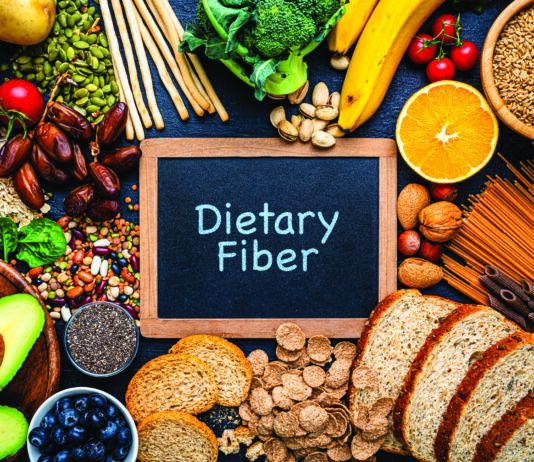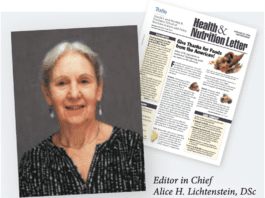Reducing Saturated Fat? Watch What Carbs You Substitute
Are refined carbohydrates worse than saturated fat? Thats the provocative headline of a recent American Journal of Clinical Nutrition editorial commenting on a large new Danish study of diet and heart-attack risk. Author Frank B. Hu, MD, PhD, of the Harvard School of Public Health, explains how, for decades, the diet-heart paradigm thats been the driving force behind dietary recommendations has emphasized the heart-health dangers of saturated fat and cholesterol. Thats led to a decrease in Americans total and saturated fat intake, while carbohydrate consumption went up. Until recently, Dr. Hu adds, the role of carbohydrates in cardiovascular disease has received scant attention.
Fortified Orange Juice Effective for Vitamin D Absorption
Can your body really absorb the vitamin D in fortified orange juice, given that the vitamin dissolves in fat (as in fortified milk) but not water? A new study says it can, adding fortified OJ to the limited list of significant food and beverage sources of vitamin D.
Seniors May Need More Vitamin D to Maintain Muscles
Vitamin D, known to be crucial to bone health, may also boost the muscle strength necessary for seniors to perform daily tasks. New research presented at the recent Experimental Biology conference reports that elderly people with higher blood levels of the sunshine vitamin are more likely to have better physical function.
Best Evidence Yet for Heart-Health Benefits of Nuts
A healthy handful of nuts may help protect you against heart disease by improving cholesterol levels, according to a new study. Lead researcher Joan Sabat, MD, DrPH, of Loma Linda University said the findings, which pooled results from 25 controlled trials in seven countries, provided the best evidence yet that eating nuts reduces LDL cholesterol and improves levels of fats in the blood.
Bacon, But Not Steak, Indicted in Heart Disease & Diabetes
A recent systematic review and metaanalysis of 20 prior studies totaling about 1.2 million people has good news and bad news for meat lovers. The good news is that eating unprocessed red meat such as beef, pork or lamb was not associated with an increased risk of heart disease or diabetes. The bad news is that the same cant be said of processed meats like bacon, sausage, salami, luncheon meat or hot dogs: Eating just 50 grams (1.8 ounces, about one hot dog or two slices of salami) of processed meat daily was associated with a 42% greater risk of heart disease and 19% increased risk of diabetes.
Whole Grains May Help Control Blood Pressure
Men hoping to ward off high blood pressure might want to boost their consumption of whole grains. A new analysis of data from the long-running Health Professionals Follow-up Study finds that men who ate the most whole grains were 19% less likely to develop hypertension than those eating the least.
Substituting Polyunsaturated for Saturated Fats Reduces Heart Risk
In light of a recent review questioning the link between saturated-fat intake and heart disease (May 2010 Healthlet-ter), another new meta-analysis suggests the key to heart health may be what you eat instead of saturated fats. If you replace saturated fats such as butter with processed carbohy-drates, you may be no better off. But replacing saturated fats with polyunsaturated fats such as those in liquid vegetable oils reduced the risk of a coronary heart disease-related event by 19%.
Nutrition in the News: Time for a Reality Check
Next to sex and celebrities, health and nutrition may be the favorite topic of todays mass media-from TV to magazines and newspapers to the Internet. But the popularity of eat this, dont eat that advice doesnt mean the information youre getting is always accurate. In thousands of pages and programming hours, its easy to let a story run away from the science.
Added Sugars Not So Sweet for Cholesterol Levels
You know that sugar can pad your waistline and cause cavities, but does too much sugar in your diet also contribute to unhealthy cholesterol levels? Thats the conclusion of the first study of its kind to look at the link be-tween consumption of sugar added to processed foods and measures of blood cholesterol known to raise the risk of heart disease.
Combinations of Food May Affect Alzheimers Risk
While scientists arent exactly ready to anoint an anti-Alzheim-ers diet, they are edging closer to an understanding of the complex inter-actions of nutrients that might help ward off Alzheimers disease. A newly published study of 2,148 senior New Yorkers has identified a dietary pattern that seems to represent an optimal combination of nutri-ents that may protect against Alzheimers, while minimizing elements associated with greater risk.

























